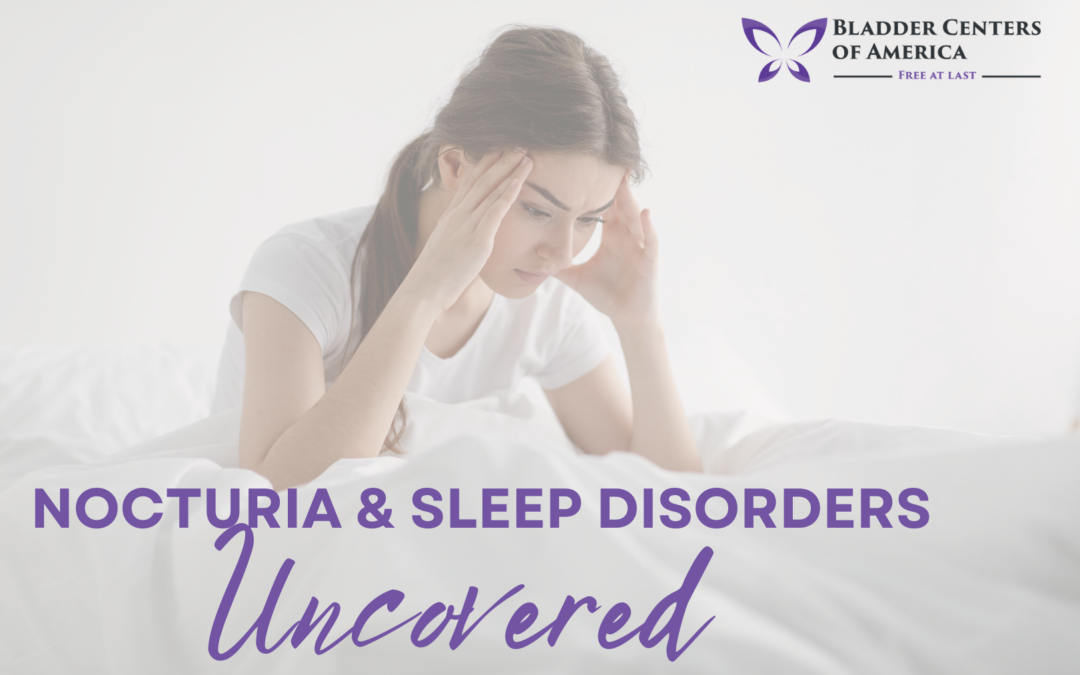Are you one of those people who find themselves waking up multiple times a night just to use the bathroom? If so, you’re not alone. This seemingly minor inconvenience, known as nocturia, can have far-reaching effects on your overall health and well-being. Today, we’ll unravel the mysteries of nocturia and explore how it impacts your sleep, health, and quality of life.
Understanding Nocturia
Nocturia, simply put, is the condition of waking up during the night to urinate. While it may sound harmless, its implications are anything but. Often, nocturia is caused by various factors, including excessive fluid intake before bed, bladder issues, or even certain medical conditions like diabetes and heart disease. Who is at risk? It can affect anyone but is more common in older adults and those with underlying health conditions.
Health Implications of Nocturia
Sleep Disruption and Daytime Fatigue
One of the most immediate effects of nocturia is sleep disruption. Interrupted sleep cycles mean you aren’t getting the restorative rest your body needs. This can lead to daytime fatigue, making you feel sluggish and less productive throughout the day.
Increased Risk of Falls and Fractures
For older adults, the dangers of nocturia extend beyond just lost sleep. The need to frequently get up at night increases the risk of falls and fractures, particularly when the house is dark and disorienting. This is a significant hazard that can’t be ignored.
The Connection Between Nocturia and Mental Health
Chronic sleep disruption due to nocturia can have serious mental health implications. It can exacerbate conditions like depression and anxiety, making it harder to cope with daily life. Additionally, lack of proper sleep can lead to mood swings, irritability, and even cognitive decline.
Managing Nocturia
Lifestyle Changes and Home Remedies
The first step in managing nocturia involves making some lifestyle changes. Reducing fluid intake before bed, avoiding caffeine and alcohol in the evening, and practicing good sleep hygiene can all help. Simple changes can make a significant difference.
Medical Treatments and Interventions
In some cases, lifestyle changes might not be enough. Medical treatments, including sacral neuromodulation, can offer relief. This advanced treatment involves electrical stimulation to regulate bladder function, helping many regain their sleep and quality of life.
The Importance of Seeking Professional Advice
It’s crucial to consult a healthcare provider if nocturia is severely impacting your life. A professional can help diagnose underlying conditions and recommend appropriate treatments. Don’t suffer in silence; help is available.
The Importance of Quality Sleep
Chronic Sleep Loss and Health Consequences
Chronic sleep loss is a widespread issue affecting millions. It can lead to a host of health problems, including hypertension, diabetes, and obesity. Sleep disorders are often overlooked but have significant public health consequences.
Impact on Daily Functioning, Health, and Longevity
Poor sleep quality affects more than just your mood. It impacts your overall health, daily functioning, and even longevity. From impaired cognitive function to increased risk of chronic diseases, the importance of quality sleep cannot be overstated.
Common Sleep Disorders and Symptoms
There are numerous sleep disorders, each with its symptoms. Insomnia, sleep apnea, restless legs syndrome, and narcolepsy are just a few. Recognizing these symptoms early can lead to better management and improved quality of life.
Conclusion
Nocturia and sleep disorders are more than just minor inconveniences; they have profound implications for your health and well-being. Prioritizing good sleep hygiene, seeking professional advice, and exploring advanced treatments like sacral neuromodulation can make a world of difference. Don’t wait—take the first step towards better sleep and health today.
For more information and personalized advice, visit bladdercenter.com. Join our community of health enthusiasts and take control of your sleep and health now.

